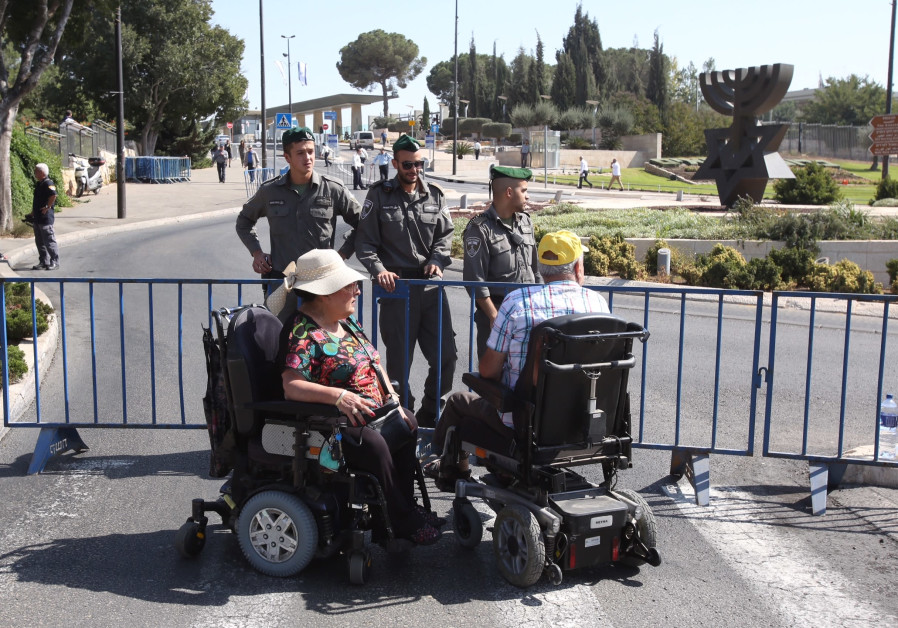International Day for People with Disabilities: Where Israel stands

Disabled Israelis protest outside the Knesset, October 2017. (photo credit: MARC ISRAEL SELLEM/THE JERUSALEM POST)
Israel is working toward greater integration of the more than one million disabled citizens, The Commission for Equal Rights for People with Disabilities said on Monday.
In Israel there are about 1.5 million people with disability, composing about 18% of the population. Among the population, 790,000 are working-age and and 500,000 are above 65 years old. The incidence of disability increases with age—9% of the children are disabled, compared to 51% of those aged 65 and more.
Regarding the type of disabilities, 42% have difficult walking, 13% have memory and concentration difficulties, 8% in vision, and 8% in hearing.
In recent years, there has been a steady increase in the employment rate of people of disability, the Ministry of Justice reported. In 2017, 48% of people with severe disabilities were employed, compared to 32% in 2011. Employment rate among people without disabilities is currently 79%.
The proportion of unemployed who actively seek work among this group is 6% compared to 3% among people without disabilities. They often face with barriers stemming from discrimination, stigmatization and lack of opportunities that make it difficult to integrate into the labor market.
In the field of education, a negative trend has been observed over the years. According to data from the Ministry of Education, the percentage of integration in schools dropped from 61% in 2012 to 56% in 2017. On the other hand, there was an increase in the number of children attending special education schools.
Only 22% of people with disabilities of working age have academic degrees, compared to 34% of people without disabilities.
Concerning leisure and social activities, 16% engage in voluntary activities, close to the percentage of people without disabilities, 22%. Fifteen percent believe they influence public decisions and are involved in public life activities, such as signing petitions, party activity or expressing an opinion in the media, similar to the percentage of people without disabilities.
“According to the statistics, there is still a long way to go in order to achieve full equality for people with disabilities within Israeli society,” said the Commissioner for Equal Rights for People with Disabilities, Avrahami Torem.
The Equal Rights Commission for People with Disabilities in the Ministry of Justice is responsible for the implementation of the Equal Rights for People with Disabilities (Law 5758-1998) and the UN Convention on the Rights of Persons with Disabilities, ratified in 2012.
Activities conducted by the Commission in 2017 included seminars and conferences, participation in legislation discussion with government ministers and Knesset members, creation of accessibility regulations, surprise inspection in institutions, among others.
“The Commission will continue to act decisively with all the tools at its disposal and in cooperation with all those working in the field,” added Torem.
The commission published data on the situation of people with disabilities in Israel for the International Day for People with Disabilities on Monday.
Disabled Israelis frequently protest what they say is the government’s inability to provide for their needs, including blocking the entrance Prime Minister Benjamin Netanyahu’s residence in October 2017.
Join Jerusalem Post Premium Plus now for just $5 and upgrade your experience with an ads-free website and exclusive content. Click here>>






Comments are closed.